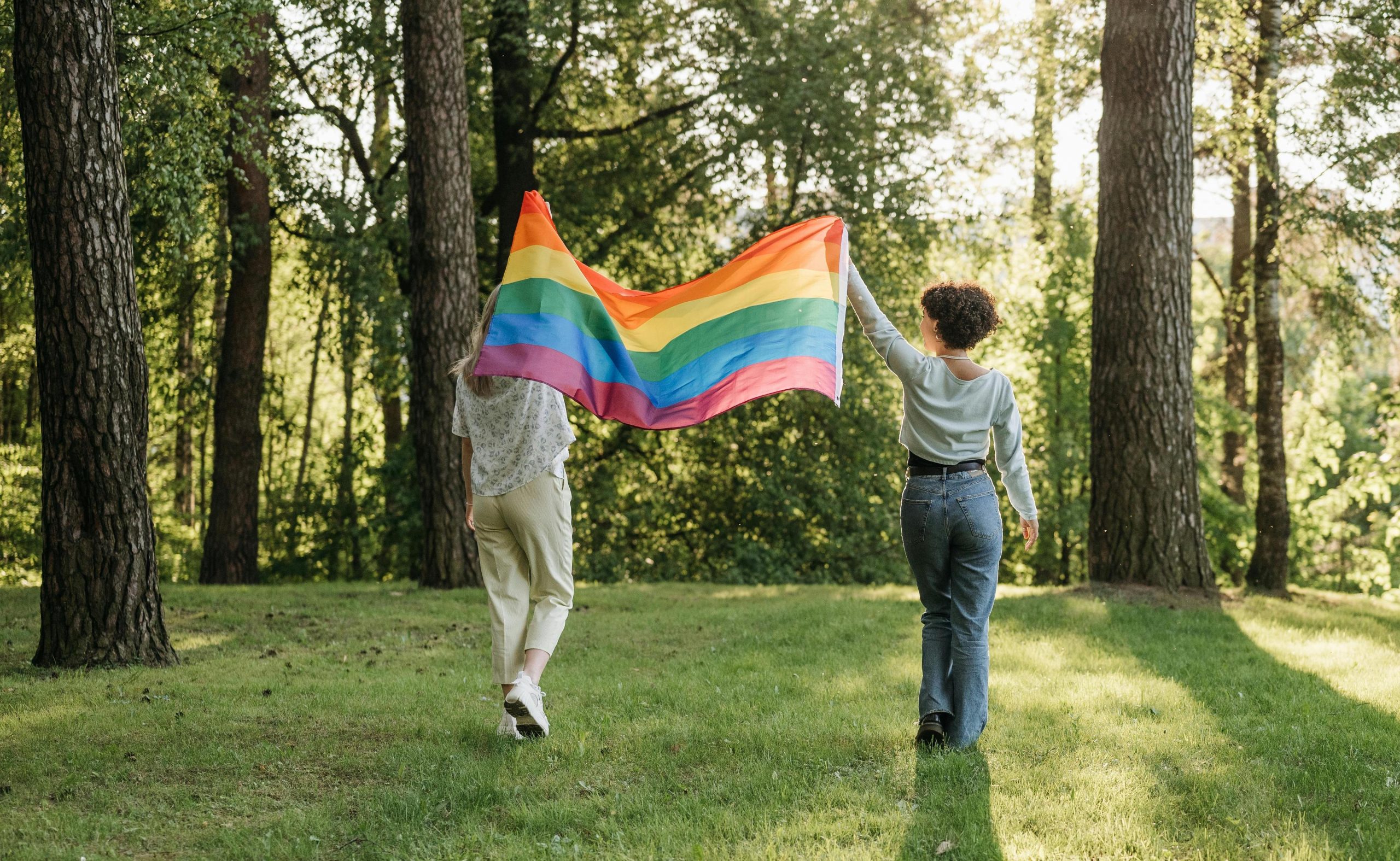Charlie, a shy 15 year old boy, has been feeling scared. He had known for a few years now that he was attracted to boys, not girls like most of his friends. He played rugby and regularly overheard the snide comments by the kids in the locker room about being gay. Charlie wants to be open with his feelings, but is afraid of what might happen.
Aisha, a 14 year old, has also been feeling quite afraid. She has come to the recent realisation that she doesn’t feel like a girl. Fortunately, Aisha has a supportive group of friends who understand her experiences. But Aisha has heard her cousins, aunties and uncles say unkind things about transgender and non-binary people, and is keeping what she’s going through to herself.
16 year-old Inez, who is in a relationship with 16 year-old Betty, has realised that she does not have any romantic feelings for Betty, and that she may be aromantic. She wants to be honest with Betty but is afraid of hurting her feelings and ruining their relationship.
Witnessing your teenager going through changes can be scary, especially if it’s unknown territory for you. This is how a lot of parents can feel when their teenagers are exploring their sexuality, gender identity or their place in the LGBTQIA+ community. Depending on your upbringing, you may have grown up in a society that was negative and unaccepting of the community. Alternatively, it may have been the opposite but you just don’t know much about the experiences of the community.
Whether it’s exploring their gender identity or sexuality, the most important thing for you to do is to listen and reassure them. Figuring these things out alone can be a scary and lonely experience, but teenagers may keep it from parents for various reasons. This fear may come from the idea that they may disappoint you, or ruin your relationship. It may also be a product of the social stories they’ve heard growing up – they might have heard family members, peers and other adults speak about the LGBTQIA+ community in a negative manner. Coming to terms with who they are can be especially challenging if they grew up with these stories, as they might feel a strong sense of shame.
If your teen has confided in you about their exploration or identity, I’d encourage you to keep that information private (unless your teen tells you that it’s okay for you to speak to someone else about them). If you feel a bit out of your depth, that’s okay! This might be completely new to you, so know that it‘s normal. What’s important is that you try to support your child to the best of your ability.
Now, this is going to require some patience from you too. As a parent, you might have a million questions running through your head (which is probably also the case for your teen!). One way to support your teen is to simply check in with them, in a sensitive and loving tone – “what do you need from me?” “Thanks for trusting me. What would you like to talk about today?” “How can I be there for you?” This allows them to take the lead and decide where they’d like to go, and what they’d like to share with you. You can also remind them that there’s no pressure to have all the answers and have it all figured out right now (this is a reminder for you too, parents!). Reassure your teens that this journey is theirs and they can move at the pace that seems right to them.
Oftentimes, when we’re talking about supporting teens in the LGBTQIA+ community, there isn’t a one-size-fits-all answer, because we will need different forms of support for different aspects and times in our journey. That being said, here are a few things that can get you started, or might fit in depending on where they’re at.
- Educating yourself on LGBTQIA+ history, movements, achievements, and key icons. As a parent, this is a great way for you to familiarise yourself with the history of the community. If you have been surrounded by negative stories of the community yourself, this is also your chance to unlearn and replace those stories with facts and positive anecdotes. If you’re sharing what you’ve learned with your teens, this is also a great way for them to learn that they are not alone in this journey, that there have been others previously standing in their shoes and have thrived!
- Asking your teen about where their school stands regarding the community – are they accepting? Do they celebrate students and staff who are part of the community? Keep in mind your teen spends most of their days at school, and it can be important for the both of you to know that they will be safe and accepted there.
- Researching LGBTQIA+ representation in media (movies, TV shows, music, video games, books). If your teen is comfortable, engaging in their favourite form of media with this focus with them might be a helpful way to connect.
- Talking about community events for social support (online and in-person). Social isolation can be a major factor in one’s journey, therefore it can be important for your teen to connect with others in the community. Of course, at the end of the day it’s their choice to determine if they’re ready to go to these events, but it’s helpful to have this information with you when they are.
- Honour and respect what your teen wants, especially when it comes to their name and pronouns. As parents, it can be hard to let go of the idea and vision you previously had of your child. However, honouring your teen by using their chosen names and pronouns is one way to make them feel seen, understood and accepted. A 2023 US survey by The Trevor Project found that transgender and non-binary youth whose family used the correct pronouns reported lower rates of attempted suicide, thus highlighting the importance of using the preferred names and pronouns.
- If your teen is comfortable, buy and openly display merchandise that aligns with your teens identity. This can be in the form of flags, stickers, lanyards or badges and you can display them at home, on your car, or even your personal items. While this may seem small or trivial, it can create an environment that affirms your teens identity and shows them that you’re proud of who they are. Minus 18 and Badgie are a great place to start.
Know that your teen just wants to feel safe. Navigating the world and exploring where they fit in can be scary, so it’s important for them to be able to come back to you as their safe home-base.
For more support, you can call Nest to schedule an appointment with Mariyah Shahrin, our resident counsellor, who is passionate about supporting the emotional well-being of teens, young adults and families, and is experienced in working with the LGBTQIA+ community.

